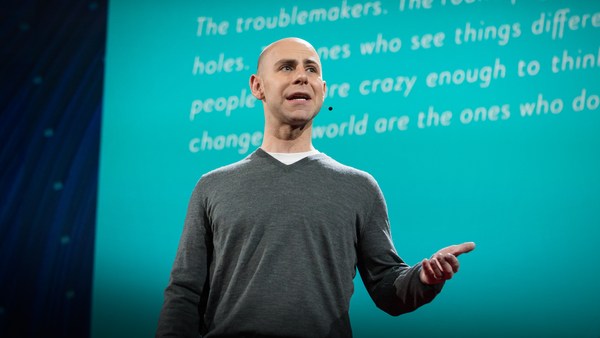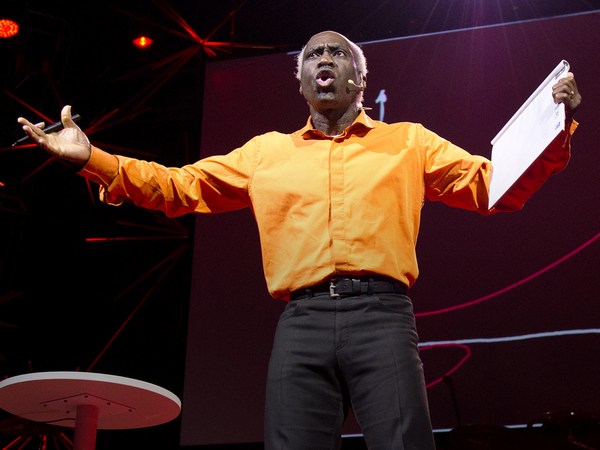If we were to travel to the past, to the year 800 BCE, we would see that the Greeks, by law, forced failed businesspeople to sit in the marketplace with a basket on their heads, so that everyone had a clear idea as to the state of their business. In premodern Italy, owners of failed businesses that had outstanding debts were taken, completely nude, to the public plaza, where they had to hit their backside against a rock while a crowd jeered at them. In 17th-century France, failed business owners were carried to the center of the marketplace, where the beginning of their bankruptcy was announced publicly. To avoid being immediately taken to jail, they had to wear a green beret so everyone knew they were a failure. Of course, these are extreme cases, but it's important to refer to the past to remember that when the laws are too punishing to failed entrepreneurs, it disincentivizes the creation of new businesses and innovation, which are the engines of economic growth of any country.
Fortunately, time has passed, and now we don't publicly humiliate entrepreneurs who fail. Still, it's not common to see big business figures publish the details of their mistakes on social media. I think everyone here can relate to the pain you feel when a project fails. But that doesn't mean we share the details of those experiences with our friends. And I understand perfectly -- I've been there, too. I had a business that failed horribly. It was a very painful experience and sharing it was very difficult. In fact, sharing it took seven years, a good amount of vulnerability and the company of my friends. This is the story of my failure.
When I was at college studying business, I met a group of indigenous women who lived in a very marginalized rural community in Puebla, a state in the center of Mexico. They created beautiful handmade crafts. So when I met them and became familiar with their work, I decided that I wanted to do something to help them. And I did everything just like they had taught me at business school back then: I partnered with my friends; we procured funding; we spent a lot of time building the business and training the artisans.
But we soon realized that we were rookies. The truth is, the crafts didn't sell -- or better yet, we didn't know how to sell them -- and the business plan we had made wasn't realistic. We worked for years without salary, waiting for a miracle to happen, hoping that magically, a huge buyer would appear and make the business profitable and prevent the entire project from dying. But in the end, the miracle didn't happen. We had to close the business and that broke my heart, because I began the whole project in order to have a positive impact on the life of the artisans, and I felt that I had actually had a very negative impact. I felt so guilty about what happened that for years I hid it from my résumé and from my conversations.
Some time later, I was out with some entrepreneur friends, and the topic of failure came up. I took the risk and confessed to them the story of my failed business that I had kept a secret for so many years. To my surprise, my friends had similar stories. And at that moment, something became very clear in my mind: I hung out with total failures!
(Laughter)
No, but seriously, that day I realized that we all have hidden failures. Tell me if that's not true.
(Audience responds)
That night, I realized that sharing your failures publicly makes you stronger, not weaker. Actually, for me, it was like an exorcism. It was like a weight was lifted off of me; I had nothing to hide anymore. That night, I also realized that being open to this new place of my vulnerability helped me connect with others in a much deeper and authentic way. As a result of that experience, of sharing stories of businesses that didn't work, we decided to create an event series so that other people could also share their stories of failed businesses. We called it "FuckUp Nights." And some time later, we created the Failure Institute --
(Laughter)
the name is awesome -- the Failure Institute. It's a research center dedicated to the study of failure and its consequences on people, businesses and society. It's been really surprising and gratifying to find that when an entrepreneur gets up on stage to tell the story of their failed business, it's not a cause for humiliation or shame, as it usually was in the past. Actually, it's an opportunity to share lessons and generate empathy. We've also found that when members of the same team get together to share their stories of failure, something magical happens: collaboration becomes easier, and the bonds become stronger.
In fact, over the course of the events and the research, we've found surprising things. Perhaps among my favorites are the differences between men and women when they're faced with failure. The most common behavior among men after closing their business is to open another business but in a different sector within a year, while among women, it's more common to look for a job and postpone creating a new business for the future. Our hypothesis is that this can be attributed to women's tendency to suffer more from impostor syndrome; that is, we feel like we're lacking in some way in order to be true entrepreneurs. However, I've seen that many times, we have everything necessary, and all that's missing is that we risk taking the first step. And in the case of men, it's more common that they feel they have the necessary knowledge and they just need to apply it in another place where they'd have more luck.
We've also found that there are interesting regional differences in terms of the way in which entrepreneurs recuperate after the failure of our business. For example, on the European continent, it's much more common that entrepreneurs seek out a therapist to recuperate emotionally. On the other hand, on the American continent, the most common behavior is to seek out education and training.
Another finding that's really changed my life is the profound impact that public policy has on the way in which entrepreneurs decide to close their business and recuperate from the experience. For example, in my country, Mexico, the regulatory framework for closing a business is so strict that closing a business in compliance with the law can take too much time and too much money. Let's start with the money part. If things go well, if your business isn't involved in big problems, if you don't have any issues with suppliers like outstanding debts, closing a business will cost you US $2,000. which in my country is a considerable amount of money. Someone who earns the minimum salary as of 2018 would have to work 15 months to come up with that money. And with respect to time, on average, closing a business takes two years. As we know, in Mexico and in many other places in the world, the average life expectancy of a business is two years. So what happens when the life expectancy of a business is so similar to the amount of time it will take you to close it if it doesn't work? Of course, this disincentivizes the creation of new businesses and promotes the informal economy. In fact, econometric research has shown that the less time and money needed to close a business, the greater the creation of new business.
So in 2017, we decided to present a series of public policy recommendations for the law that governs the closing of businesses. For a year, we worked with the Association of Entrepreneurs and with the Mexican congress, and the good news is that we managed to change the law.
(Applause)
The idea is that once the new legislation goes into effect, entrepreneurs will be able to close their business via an online process, which will be much more accessible to everyone and shorter. The truth is, when I look back and remember that night when my friends and I confessed our failures to each other six years ago, I'm surprised, because at that moment, our intention was very simple: the only thing we wanted to do was put the subject of failure on the table so more friends could see that this was a topic to be talked about. It's not a time for humiliation as in the past, nor is it a cause for celebration, as some people say.
In fact, I'll admit that when I hear students or people from Silicon Valley brag about failing fast or frequently, as if closing a business were no big deal, the truth is, it worries me a lot. And it worries me because I think that behind the mantra of failing fast, or "fail fast" as they say in Silicon Valley, there's a dark side. On one hand, when we insist to entrepreneurs that failing fast is the only option, it's possible that we're promoting mediocrity -- that entrepreneurs don't give their maximum effort, and that they give up when faced with the most minor difficulty. I also think that when we talk about failing fast, we're minimizing that negative impact that closing a business has. Of course, I believe failing fast is a great way to accelerate learning and avoid wasting time. But we can't deny the negative consequences that exist behind the death of a business.
For example, when my social enterprise failed, the worst part was going back to the indigenous community and confessing to the artisans that the project had died, and that I was responsible. For many, this could have been viewed as a learning opportunity. The truth is that the death of this business meant that the artisans would lose income that they desperately needed.
So today, I'd like to propose an idea. I'd like to propose that just as we put aside the idea of publicly humiliating entrepreneurs who fail, we should also put aside the idea that to fail fast is always best. Instead, I want to propose a new mantra: fail with awareness, or "fail mindfully" -- experience with full attention the entire process that closing a business involves. Remember that businesses are not entities that magically appear and disappear. Businesses are made up of people. And if a business project fails, surely, some of those people will lose their jobs or lose money. And in the case of social enterprises or green businesses, when they fail, surely the closing of the project will have a negative impact on the communities or ecosystems they were intended to benefit.
But what do I mean by "fail mindfully"? For me, it means being aware of the impact that closing a business has, being aware of the lessons learned, and above all, being aware of the great responsibility to share those lessons with the world.
Thank you.
(Applause)


